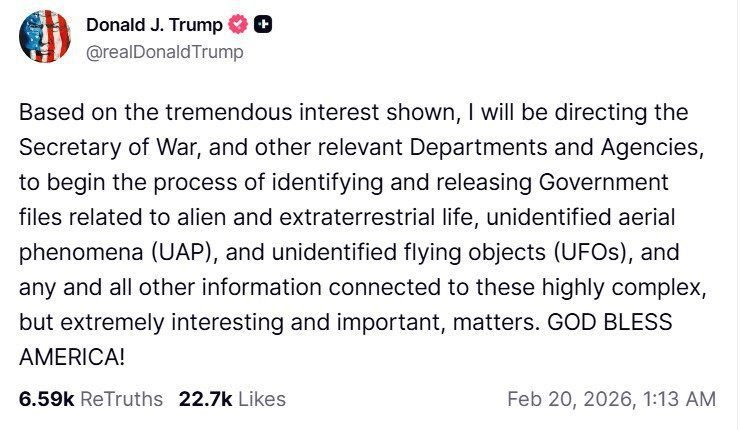The other day my wife called me and asked me what I was doing. I gave her the standard one word answer – working. She then asked me what I was thinking. I gave her the standard one word answer – nothing. We often joke back and forth like this but basically she was curious as to what I was doing and what I was thinking that day. I then told her that I had a meeting with one of our Table Game Shift Managers. She questioned me about what a Vice President of Casino Marketing and a Casino Shift Manager would talk about on a rainy day? I told her that at Foxwoods we discuss normal casino business matters as well as some very unusual and different things such as physics and psychology. She couldn’t tell if I was joking or serious. We are very fortunate to have a lot of very bright and creative people on our team here at Foxwoods. Ken Perrie is one of them. He always challenges me with unusual questions which I enjoy. At our meeting, we had an interesting discussion about behavioral habits and the way certain players develop some very unusual gaming habits. This caused us both to wonder why?
The next day Ken came to my office with a big file of information about physics and psychology. My first reaction was that you don’t have to be crazy to work here but it helps. The first question that he asked me was if I was familiar with Newton’s Laws? Newton was one of the world’s greatest physicists. Newton developed a number of Laws such as the Law of Inertia which states that a body at rest and a body in motion continue to move at a constant velocity unless acted upon by an external force. A force “F” acting on a body gives it an acceleration “a” which is in the direction of the force and has a magnitude inversely proportional to the mass “m” of the body: F= ma. Whenever a body exerts a force on another body, the latter exerts a force of equal magnitude and opposite direction on the former. This is known as the weak law of action and reaction. Ken related this to pulling on a slot handle versus pushing a button.
When you consider all of this within the casino, it is interesting to see how many different games are affected by Newton’s Law of Physics. Ken also has his own theory that many scam artists and cheats actually study Newton’s Law of Physics to help them with their cheating. I never thought of this before in these terms but after reading a little bit about Newton there may be something to Ken’s theory about casino cheating. Think about it.
The next question he asked me was if I was familiar with Charles Darwin and his theory of Natural Selection. Darwin was a 19th century biologist from England. He developed a theory that would contradict the creation of man and imply that all species derived from common ancestors through a process called natural selection. Darwin found that organisms that die as a consequence of competition was totally random which resulted in a well known phrase called “survival of the fittest”. It is an interesting theory worth reading some day. Again, Ken related it to his own casino industry survival of the fittest theory. Look at all of the recent consolidations. How many casinos or casino brands
have disappeared over the past few years? Just like the dinosaurs that disappeared millions of years ago; survival of the fittest.
Ken’s next personality was Sigmund Freud. I started my university studies many years ago in Pre-Med to become a doctor. In fact, I wanted to become a psychiatrist so I read quite a bit of Freud in college. Freud had a lot of interesting theories about the conscious mind, the preconscious and the unconscious. The unconscious is by far the largest part. It includes all of the things not easily available to awareness, including many things that have their origins there, such as our drives or instincts. According to Freud, the unconscious is the source of our motivations, whether they are simple desires for food or sex, neurotic compulsions or our motivations. And yet, we are often driven to deny or resist becoming conscious of these motives, and they are often available to us only in disguised form.
By now you are probably thinking that Steve Karoul is nuts. However, there is a lot to be learned from Freud and other great thinkers. Being a Vice President of Casino Marketing and being a psychiatrist actually have a lot of similarities and common ground. If you don’t think so, I suggest that you take a few minutes and go on-line and do a Google search of Sigmund Freud. You will find that Freudian psychological reality begins with a world full of objects. Among them is a very special object called the organism. A special part of the organism is the nervous system which has as one of its characteristics a sensitivity to the organism’s needs. You can read briefly about the id, the ego and the superego. The id works in keeping with the pleasure principle which can be understood as a demand to take care of needs immediately. The id eventually becomes ego which relates to the ability of the organism to solve problems called the secondary process. The ego records rewards and punishments and eventually develops into the superego which contains the conscience and the ego ideal. If you keep reading about Freud you will eventually come to his theory on Life Instincts and Death Instincts as well as Libido or the motivation to have sex. Ah, now you can better understand. We all know that in the casino business that sex sells. Just take a look at the majority of casino advertising or marketing and you will usually see a sexy woman or man. Freud explains why. So, once again, psychiatry and casino marketing are quite similar. Freud, like many gamblers, once said “life is not easy” which translates to “gambling is not easy”. Yet life goes on and gambling goes on. Why? I encourage you to read a little more about Freud and you will find the answers to many of these questions.
Freud was a genius with many different theories that can be related to gambling. Do a little reading and research and you will be surprised to learn more about motivation and how you can incorporate many of these ideas into modern casino marketing techniques. Another theorist named Carl Jung also has a number of interesting theories that many modern psychologists relate to. It helps to understand why people enjoy gambling and it also helps to understand how pleasure affects the body and the mind. All of this new knowledge can help you to develop more targeted casino marketing promotions thereby maximizing your marketing dollars.
I don’t want to sound too technical but I also want to stress that you don’t have to reinvent the wheel when designing a lot of your casino promotions. However, it is really helpful to have a basic understanding of human psychology if you want to maximize the profitability of your promotions. For example, are you familiar with another great psychologist named B.F. Skinner? Skinner’s theory involved “operant conditioning” and “reinforcing stimulus”. In operant conditioning, “the behavior is followed by a consequence, and the nature of the consequence modifies the organism’s tendency to repeat the behavior in the future”.
Imagine a rat in a cage. This special cage is called a “Skinner box” and it has a bar or pedal on one wall that, when pressed, causes a little mechanism to release a food pellet into the cage. Imagine the rat running around the cage, doing whatever it is that rats do, when he accidentally presses the bar and, bingo, a food pellet drops into the cage. The operant is the behavior just prior to the reinforcer, which is the food pellet, of course. In no time at all, the rat is furiously peddling away at the bar, hoarding his pile of pellets in the corner of his cage. Does any of this remind you of a slot machine and a slot customer?
Skinner’s research actually gets much more involved and much more interesting. Skinner likes to tell about how he “accidentally”, i.e. operantly, came across his various discoveries. For example, he talks about running low on food pellets in the middle of a study. This was before the days of “Purina rat chow” so Skinner had to make his own rat pellets, which was a slow and tedious task. Therefore, he decided to reduce the number of reinforcements that he gave to his rats for whatever behavior that he was trying to condition them to, and, lo and behold, the rats kept up their operant behaviors, and at a stable rate, no less. This was how Skinner discovered his “Schedules of Reinforcement”. Skinner experimented with continuous reinforcement, fixed ratio schedules, fixed interval schedules and variable schedules which all offered different reward frequencies and patterns of behavior. According to Skinner, this is the psychological mechanism of gambling. You may not win very often, but you never know whether or when you will win again. It could be the very next time, and if you don’t roll the dice, or play that hand, or bet on that number or pull that slot handle this once, you’ll miss the opportunity for the big win. Skinner also addressed more complex behaviors with the idea of “Shaping” or “the method of successive approximations”. Basically, it involves first reinforcing a behavior only vaguely similar to the one desired. Once that is established, you look for variations that come a little closer to what you want, and so on, until you have the animal performing a behavior that would never show up in ordinary life. Now stop and think a moment about gambling and some of the various casino marketing promotions that you have seen. Can you begin to see some similarities?
Psychology is an interesting subject. There is a lot of good reading material available on “behavior modification” often referred to as “b-mod”. Basically the therapy technique is based upon Skinner’s work. It is pretty straight-forward: Extinguish an undesirable behavior (by removing the reinforcer) and replace it with a desirable behavior by reinforcement. It has been used on all sorts of psychological problems such as problem gaming, addictions, neuroses and even schizophrenia. By better understanding behavior
we can better identify problem gamblers and try to help them in the early stages of their problem.
A basic understanding of psychology is important today for the modern casino executive. Much of what we do either drives business to our casinos or helps us to increase market-share. Understanding what motivates people is a big help. In addition, psychology plays a big role in our daily interpersonal relationships with both our staff and our peers. I feel very fortunate to work at Foxwoods. My company understands this and supports us. Foxwoods has committed a lot of money for management development programs. All of our executives and tribal council members have attended the Center for Creative Learning to attend their Leadership Development Program. In addition, Foxwoods employs a professional Psychologist and a Management Consultant to continually help our management team further develop their skills. We spend a considerable amount of time on Emotional Intelligence. We have all taken the various psychological tests such as MSCEIT, Meyer Briggs, Campbell Organizational Survey, etc. If nothing else, we learned a lot about ourselves and our own personalities. The most interesting area is Emotional Intelligence due to the fact that EI is usually one of the key factors to executive derailment and failure. There are many good books available covering the subject of Emotional Intelligence. I highly recommend that you buy one and read it. It will be well worth the effort and the subject matter will help you both in work and at home. Good luck.
Indiana vs. No. 7 Purdue CBB Odds, Predictions, Picks for Friday, February 20
The Indiana Hoosiers (17-9 SU, 13-13 ATS) meet the Purdue Boilermakers (21-5 SU, 12-14 ATS) tonight in Big Ten college






0 responses on "Physics, Psychology and the Casino Industry"